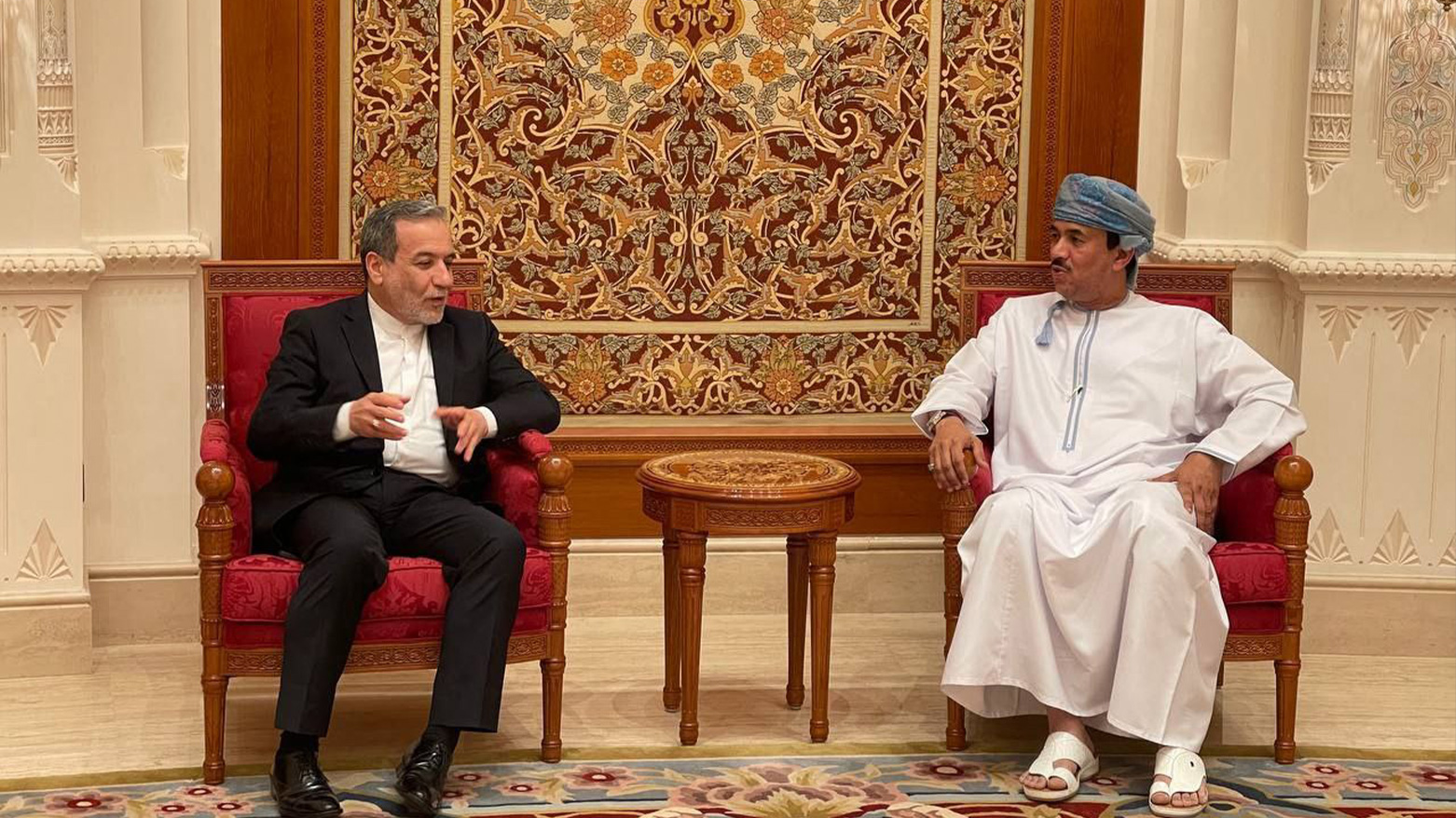Trump Warns: 'If No Deal, I’ll Lead the Pack' as U.S.-Iran Talks Enter Third Round in Muscat
According to Iranian Foreign Ministry spokesperson Ismail Baghaei, Araghchi leads a special diplomatic and technical delegation tasked with pursuing Iran’s long-standing demand: internationally binding guarantees that its nuclear program will be recognized as exclusively peaceful.

By Kamaran Aziz
ERBIL (Kurdistan24) – In a move that may shape the trajectory of nuclear diplomacy in the Middle East, Iranian Foreign Minister Abbas Araghchi arrived in Muscat on Friday at the head of a high-level delegation for the third round of negotiations with the United States. The latest discussions, scheduled for Saturday in the Omani capital, are being mediated by the Sultanate of Oman, which continues to play a pivotal role as a diplomatic bridge between Tehran and Washington.
According to Iranian Foreign Ministry spokesperson Ismail Baghaei, Araghchi leads a special diplomatic and technical delegation tasked with pursuing Iran’s long-standing demand: internationally binding guarantees that its nuclear program will be recognized as exclusively peaceful. Baghaei emphasized that the delegation’s top priority will be the immediate and comprehensive lifting of what Tehran refers to as "illegal and inhumane" U.S. sanctions.
The Iranian state-affiliated Mehr News Agency released footage showing the arrival of the delegation and the foreign minister’s descent from the aircraft, signaling the seriousness with which Tehran is approaching this latest round of talks. Omani Foreign Minister Badr Busaidi is set to mediate Saturday's discussions, reflecting Oman’s consistent role as a trusted intermediary in regional negotiations.
This weekend’s meeting marks the third encounter between U.S. and Iranian officials in less than a month. The previous round was held in Rome, while the inaugural session of this revived diplomatic track took place earlier in April. These efforts signal a renewed willingness—at least procedurally—from both sides to explore the possibility of a negotiated framework amid ongoing international concerns about Iran’s nuclear ambitions.
According to a report by the Wall Street Journal, the Trump administration has signaled a potential compromise by offering to permit Iran a civilian nuclear program, provided it relies exclusively on imported nuclear fuel. U.S. Secretary of State Marco Rubio stated that the U.S. would support a power generation model that allows Iran to operate nuclear reactors under strict limitations that prevent uranium enrichment on Iranian soil. The move, which steps back from earlier demands for full dismantlement of Iran’s program, is designed to block Iran’s path to developing nuclear weapons.
Rubio emphasized that enriched uranium would have to be imported and limited to low-enrichment levels of 3.67%, similar to civilian nuclear energy models used in other countries. The proposal, however, remains controversial. Ali Shamkhani, a senior adviser to Iran’s Supreme Leader Ayatollah Ali Khamenei, has already dismissed what he termed the "U.A.E. model," asserting that Iran will not accept foreign dependency for its fuel needs.
Nuclear policy experts, including former negotiators from the Obama and Biden administrations, point out that the core challenge remains trust. Iran has historically resisted offers requiring foreign-controlled fuel, citing concerns over reliability and sovereignty. Despite this, U.S. negotiators Steve Witkoff and Michael Anton are expected to advance this model as the most viable path to prevent Tehran from reaching weapons-grade enrichment.
The talks take place against the backdrop of Iran’s continued production of 60% enriched uranium, a level well beyond civilian needs and alarmingly close to weapons-grade. While U.S. intelligence indicates that Supreme Leader Khamenei has not authorized weaponization, the stockpiled material is sufficient for multiple nuclear devices. Rafael Grossi, the Director General of the International Atomic Energy Agency, has confirmed that there has been no indication of a slowdown in enrichment despite the renewed diplomatic engagement.
Grossi recently secured Iran’s agreement to allow IAEA technical experts to visit and discuss restoring monitoring equipment that had been previously removed. While not directly linked to the U.S.-Iran negotiations, this step is seen as a sign of Tehran’s potential openness to compromise.
The American delegation, led by Witkoff, reflects President Donald Trump’s hardline yet transactional approach to foreign policy. Trump has made it clear that if negotiations collapse, the U.S. is prepared to act militarily, saying in a recent Time Magazine interview, “If we don’t make a deal, I’ll be leading the pack.”
The current negotiations in Muscat will test whether the new U.S. proposal can gain traction or whether the impasse over enrichment will once again derail talks. As both sides enter the technical discussions on Saturday, the outcome will have far-reaching implications—not just for Iran’s nuclear trajectory, but for regional security, global non-proliferation norms, and the fragile balance of power in the Middle East.
All eyes now turn to Oman, where diplomacy once again meets the hard edges of national interest, mutual suspicion, and high geopolitical stakes.